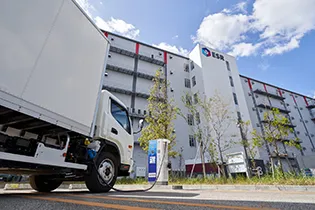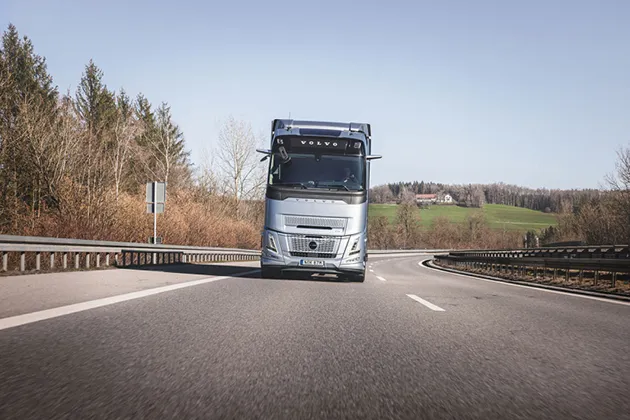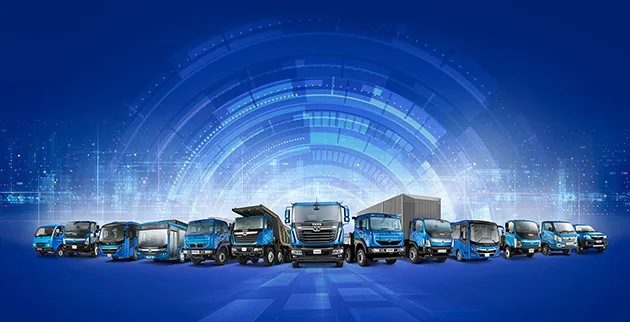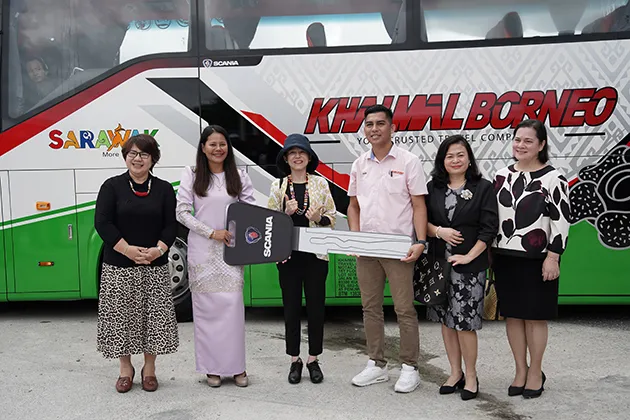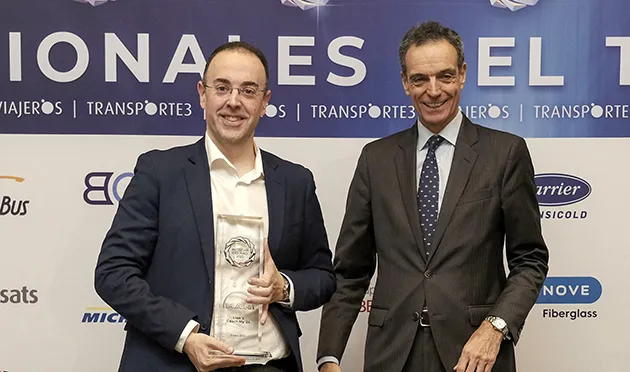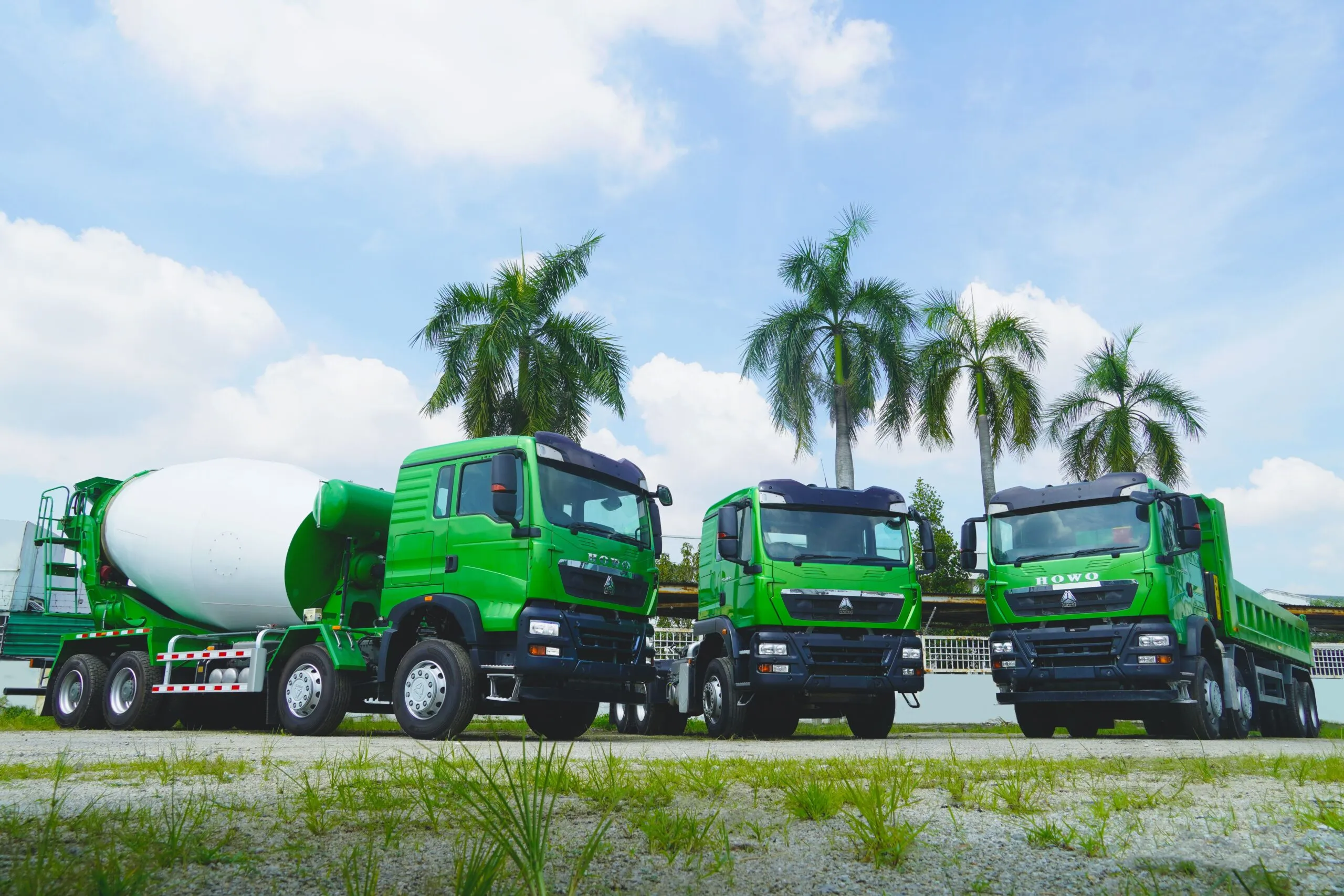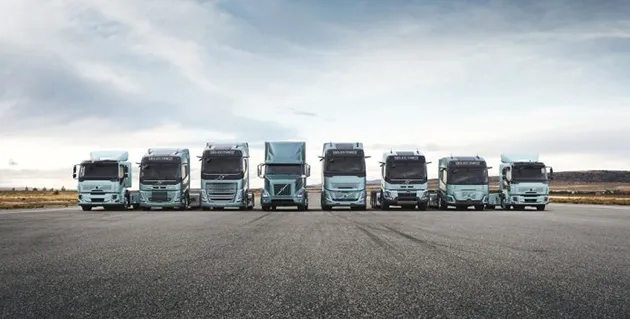Mitsubishi Fuso Truck and Bus Corporation, Daimler Truck Financial Services Asia Co., Ltd.and ESR Group Limited have concluded a Memorandum of Understanding to develop and implement solutions for eMobility in January 2024.
Quick Chargers to Install at ESR’s Distribution Centers in Tokyo
This partnership is a part of MFTBC’s “FUSO eMobility Solutions” program, which supports customers’ shift towards EV (electric vehicles) with MFTBC’s comprehensive assistance for surrounding elements essential to EV trucks. Utilising zero-emission vehicles (ZEVs) such as MFTBC’s electric light-duty truck “eCanter” and ESR’s logistics facilities, the collaboration will look into various solutions to realise carbon-neutral logistics. Additionally, the partnership will make use of “FUSO Green Lease” product, a dedicated leasing program for the new eCanter provided by DTFSA, to maximise convenience for customers. The FUSO Green Lease is offered in Japanese market only.
The MOU defines five focus areas of collaboration:
1 Development of green charging network for FUSO ZEVs at ESR’s logistics facilities mainly in the metropolitan area of
2 Joint consideration of utilization of ESR’s logistics facilities in Japan to promote implementation of carbon neutral logistics, such as installing infrastructure for ZEVs.
3 Joint development of a strategy and commercial model to supply renewable energy to FUSO’s ZEVs at ESR’s logistics facilities using rooftop and ground-based solar power generation systems to enhance the environmental value of EV truck operation.
4 Consideration of strategies for utilising FUSO’s ZEV batteries or recycled batteries at ESR’s logistics facilities in Japan to contribute to the efficient use of EV battery resources.
5 Aiming to contribute to regional decarbonization through potential expansion of the above initiatives and knowledge to ESR’s facilities in the Asia-Pacific region.
The first initiative will include installation of quick EV chargers for eCanters at ESR’s distribution centers located in the Greater Tokyo Bay area from Chiba to Kanagawa Prefectures starting in 2024.
While EV trucks such as eCanters are normally charged at users’ business facilities (“basic charging”), installation of charging infrastructure at ESR’s distribution centers which are located in major logistics hubs will encourage greater adoption of eCanters by providing “en-route charging” and “emergency charging”, when the eCanter driver visits ESR’s logistics facilities.
Due to their limited space or low output equipment, existing public charging networks may not be well recognised as an adequate means for en-route charging and safety-net when EV trucks run short of battery.
The electricity for charging will primarily be generated by solar power generation equipment installed on the roof of ESR’s distribution centers, realising the sustainable operation models of eCanter that MFTBC and ESR are aiming for. Additionally, the ESR distribution centers’ rest areas will be open to drivers, allowing them to rest comfortably while they are waiting for the vehicle to charge.
MFTBC launched the latest model of the electric light-duty eCanter truck in March 2023 and promotes activities to strongly support customers’ EV shift with “FUSO eMobility solutions”, while leveraging “FUSO Green Lease” bundled packages to be a one stop solution for all eCanter related necessities. ESR’s facilities have been constructed based on architectural plans that take reducing environmental impact into account and feature environmentally friendly lighting systems, rooftop solar panels and other features. As part of its ESG 2030 Roadmap, ESR aims to install 1,000 MW of rooftop solar power capacity.
Through the collaboration with ESR, MFTBC and DTFSA will create an environment where customers can easily implement and operate eCanter, supporting customers’ transition to carbon neutrality.

